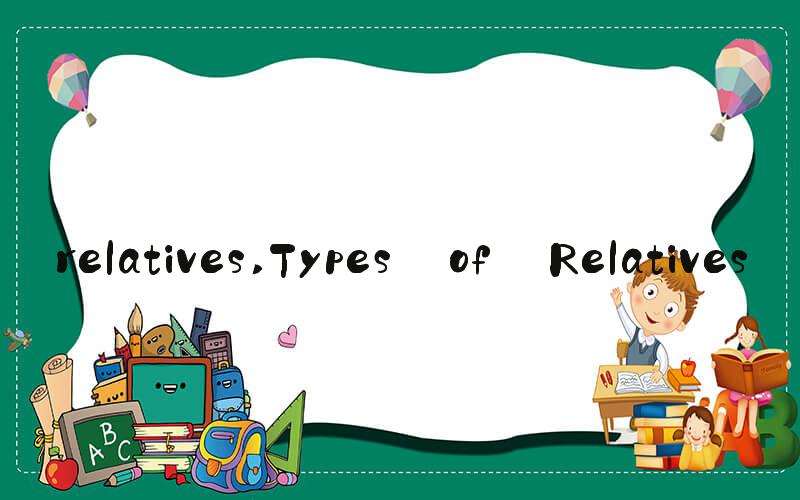
Relatives: The Importance of Family Connections
Family is considered the most fundamental and significant of all human institutions. Relatives can bring about a sense of belonging, happiness, and love to individuals who may not find such comfort in other areas of their lives. In this article, we will explore the different types of relatives, their roles in society, and how they help shape our lives.
Types of Relatives
Relatives come in different shapes and sizes and our relationship with them often varies according to our familial connections. Some of the common types of relatives include:
Parents
Siblings
Grandparents
Aunts and Uncles
Cousins
Each of these relatives plays a unique role in our lives, and together they form the foundation of our families.
The Roles of Relatives in Society
Relatives have always played a significant role in society, acting as a support system, caretakers, mentors, and confidants. These roles have been shaped over generations as families have evolved and changed. Today, relatives play an important role in the well-being of individuals, families, and society as a whole.
Parents are the first and most important relatives that we have. They provide us with the basic necessities of life, such as food, shelter, and protection. They also help us develop our character and values, and guide us through various life stages.
Siblings do more than just share genes, they provide companionship and support throughout life. They can serve as confidantes, playmates, and partners-in-crime. Our siblings can strengthen our family bonds and provide emotional support throughout difficult times.
Grandparents serve as a bridge between different generations. They provide wisdom, experience, and guidance to their younger family members. They can also serve as babysitters, caregivers, and even financial supporters when needed.
Aunts and uncles can be a source of emotional support and guidance for children or younger relatives. They can provide advice, mentorship and a different perspective on life's challenges. Cousins can be friends and allies, providing emotional support, and lifelong companionship.
The Importance of Family Connections
Families are the bedrock of society, and without relatives, our lives would be much less meaningful and fulfilling. The connections we have with our family members can impact our mental and emotional well-being, influence our sense of identity, and even benefit our physical health. Research has shown that individuals with strong family connections tend to have higher levels of happiness, satisfaction, and fulfillment in life.
Furthermore, family connections can be particularly critical during times of stress or difficulty. Relatives can provide emotional support, guidance, and practical help, easing the burden of difficult life circumstances.
The Future of Family Connections
In the modern world, family structures are changing. While relatives still play a critical role in our lives, the traditional model of the nuclear family is evolving. Many individuals have formed non-traditional families and rely on friends or other community members for support.
However, relatives remain an essential part of the human experience. No matter how families are structured, relationships with relatives provide a sense of continuity and connection, helping us navigate the ups and downs of life.
Conclusion
Relatives are a vital component of our lives and help shape our experiences in many ways. They play many roles, provide us with support and guidance, and are critical to our emotional well-being. As we move forward, it's important to recognize the vital role that relatives play in supporting individuals, families, and society as a whole.

